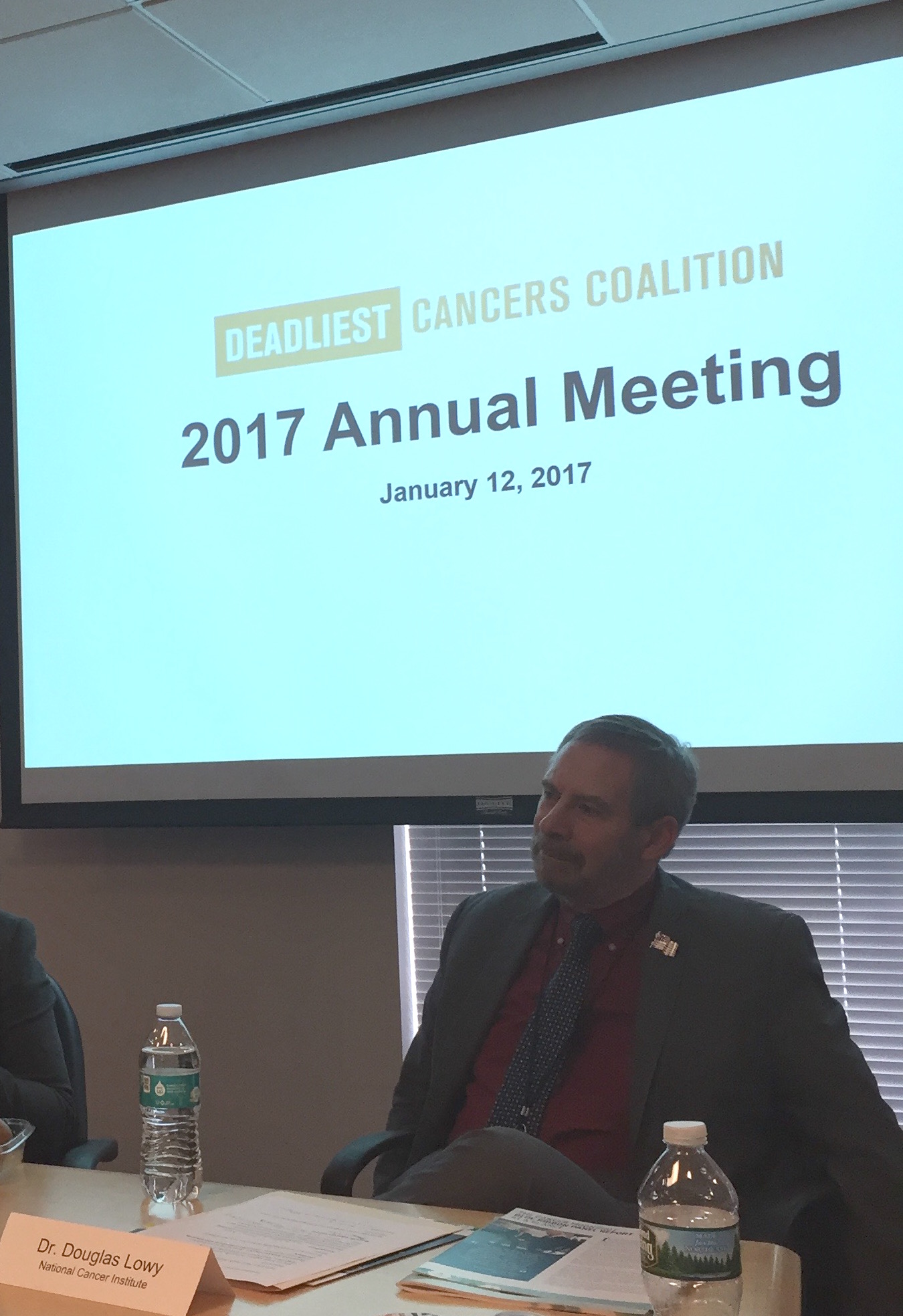By TargetCancer Foundation Advocacy Council Member DJ Webster
Last Thursday, TargetCancer Foundation traveled to Washington D.C. for the annual in-person meeting of the Deadliest Cancers Coalition, a collaboration of national non-profit organizations that TargetCancer is a member of. The DCC is focused on addressing policy issues related to our nation’s deadliest (or recalcitrant) cancers, defined as those that have five-year survival rates below 50 percent, which includes both esophageal cancer and cholangiocarcinoma.
2017 will be a pivotal year for the world of health care and cancer research. The Senate and the House is planning to repeal the Affordable Care Act. Congress is allocating research funding to the National Institute of Health, National Cancer Institute and the Cancer Moonshot Initiative. The policy decisions made in the coming months will affect millions of Americans and change the way they receive care. And the changes may be drastic.

Those of us in attendance were fortunate to hear directly from Acting National Cancer Institute Director Dr. Douglas Lowy, who highlighted various NCI initiatives as well as the Cancer Moonshot effort. In addition, Rodney Whitlock of ML Strategies briefed the attendees on the status of the repeal of the Affordable Care Act and what it will mean for the millions of Americans who are currently receiving coverage through it. There have been mixed messages from the GOP, President-elect Trump and other health policy leaders as to what the replacement plan will include. There is great speculation as to what may happen over the next few weeks, but there is one thing that’s abundantly clear: If the Affordable Care Act is repealed and not replaced simultaneously, it will be catastrophic for cancer patients.
Whitlock divided health care coverage into three decision categories: benefits, providers and cost. The replacement plan will need to balance the three, forcing Congress to make policy decisions as to what is covered, who provides the care and who is paying the cost. There are tradeoffs that need to be made to achieve their goal of lowering costs and expanding coverage – which may vary in definition depending on who you are talking to – but Whitlock made it clear that these changes do not need to happen immediately. The Affordable Care Act and its current policies around insurance subsidies aren’t set to collapse in 2017, and Congress can make a choice to take time to devise an adequate replacement plan before they repeal.
According to a report from the Congressional Budget Office, more than 18 million Americans would lose health insurance in the first year after the ACA repeal. And when you’re talking about patients who are battling the deadliest cancers in the world, this policy decision could mean the difference between life and death. TargetCancer Foundation urges our lawmakers to think about the immediate and drastic impact to those facing deadly cancers (and all cancers) as they consider a repeal of the ACA.
TargetCancer Foundation has been a member of the Deadliest Cancers Coalition for 4 years.
